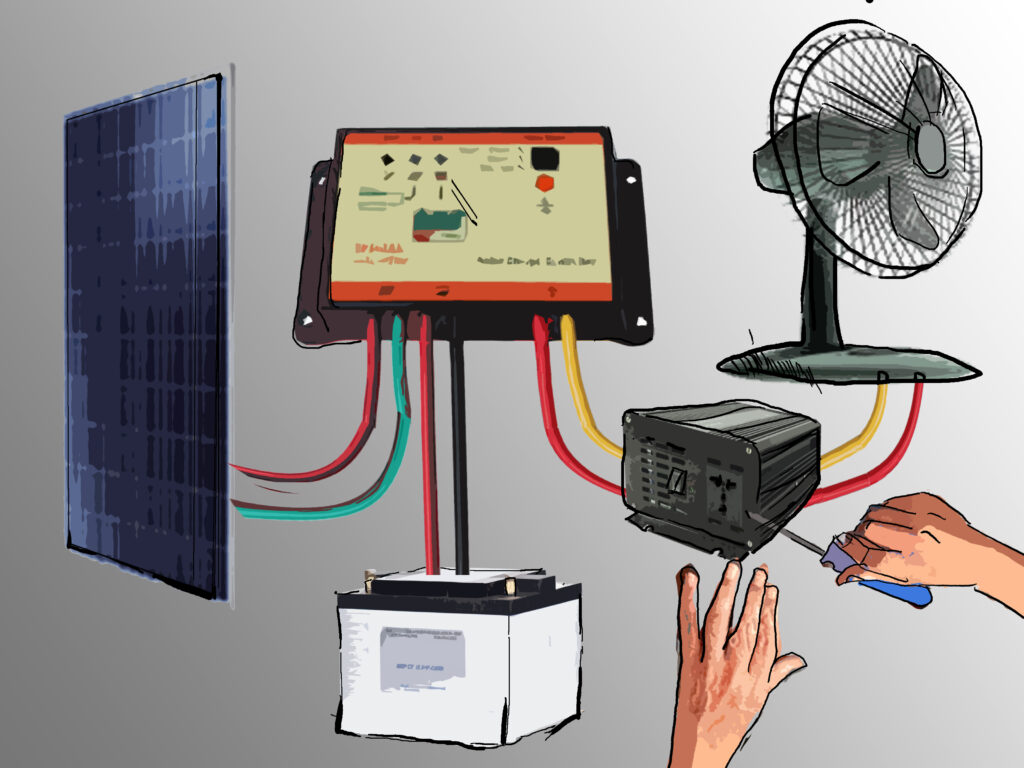Solar panels need controllers, also known as charge controllers or solar charge regulators, for several reasons.
- Battery Protection: In off-grid solar systems, where energy is stored in batteries for later use, charge controllers regulate the charging process to prevent overcharging. Overcharging can damage batteries, reduce their lifespan, and even pose safety risks such as leaking or explosion.
- Prevention of Battery Discharge: Charge controllers prevent batteries from discharging energy back into the solar panels at night or during periods of low sunlight. This prevents damage to the batteries and ensures that energy is stored efficiently for later use.
- Optimization of Power Output: Charge controllers help optimize the power output of solar panels by matching the voltage and current levels of the panels to the charging requirements of the batteries. This ensures that the batteries receive the appropriate amount of power without being overloaded or undercharged.
- Protection from Overvoltage: Charge controllers protect solar panels from overvoltage conditions that can occur during periods of high sunlight or when the battery bank is fully charged. Overvoltage can damage the solar panels and other components of the system, so controllers prevent this by regulating the voltage output.
- Temperature Compensation: Some charge controllers include temperature sensors to adjust the charging voltage based on the temperature conditions, ensuring optimal battery charging regardless of environmental factors.
Overall, charge controllers play a crucial role in maximizing the efficiency, safety, and lifespan of solar energy systems by regulating the flow of power between the solar panels, batteries, and other components.


